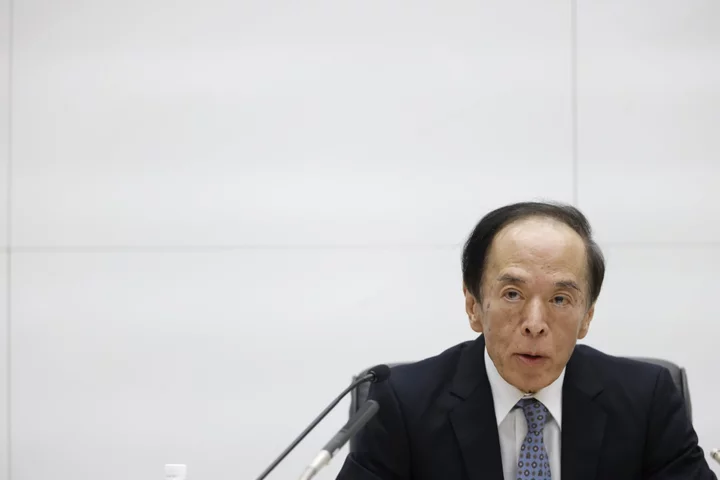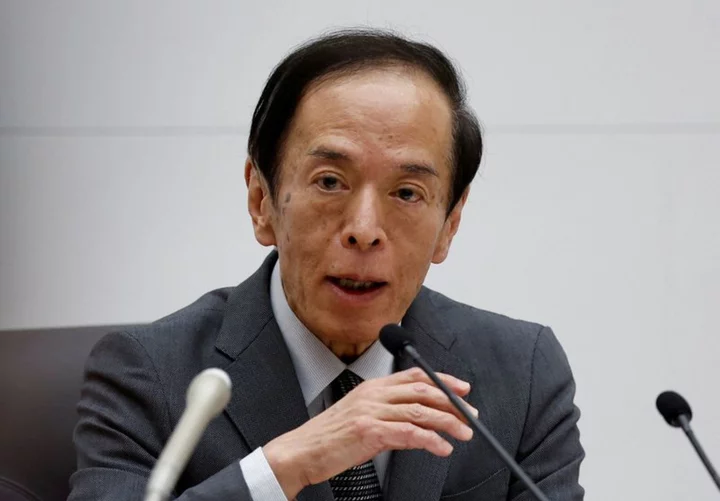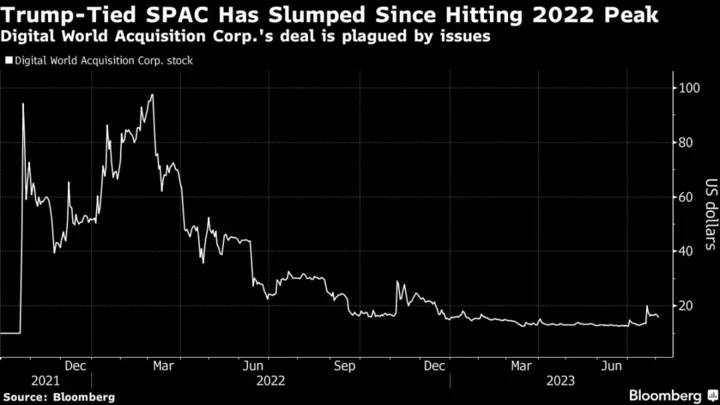The Bank of Japan racked up the most unrealized losses on its bond holdings on record in the latest six-month period, illustrating the challenge facing Governor Kazuo Ueda if he moves toward normalizing policy.
The paper loss on those assets was ¥10.5 trillion ($70.7 billion) at the end of September, the largest loss in data going back to fiscal 2004, according to the central bank’s semi-annual financial statement Tuesday. It’s more than 60 times bigger than the ¥157 billion loss tallied for last fiscal year.
The loss itself isn’t likely to deter Ueda from paring back stimulus if the bank’s inflation goal is achieved. Still, it’s an indication of the challenge ahead when the central bank eventually moves toward an exit, as most economists expect to see by the middle of next year. Even a minuscule rise in yields degrades the value of the bank’s massive bond holdings, which account for more than half of all the central government’s outstanding debt.
Japan’s 10-year yields rose to around 0.75% at the end of September from 0.33% in March after the central bank loosened its grip on 10-year government bond yields in July. Authorities further eased their guidance in October, and yields touched a fresh decade high of 0.97% earlier this month.
At the same time, unrealized gains from holdings of exchange traded funds continued to expand as stock prices rose during the period. Such gains reached a record ¥23.6 trillion, rising 47% from the end of March. Unaffected by those unrealized gains and losses, the BOJ’s net income in the period rose to ¥1.9 trillion.
Ueda has indicated there is little need for serious concern over the financial situation of central banks, although they still need to manage finances responsibly to retain credibility in the markets.
“Temporary losses or negative equity do not impede their ability to conduct monetary policy,” Ueda said in a speech in September, referring to central banks. “However, this does not mean that a central bank can run up unlimited losses and negative equity.”
(Amends characterization of comparison with last FY figure in story published Nov. 28)









